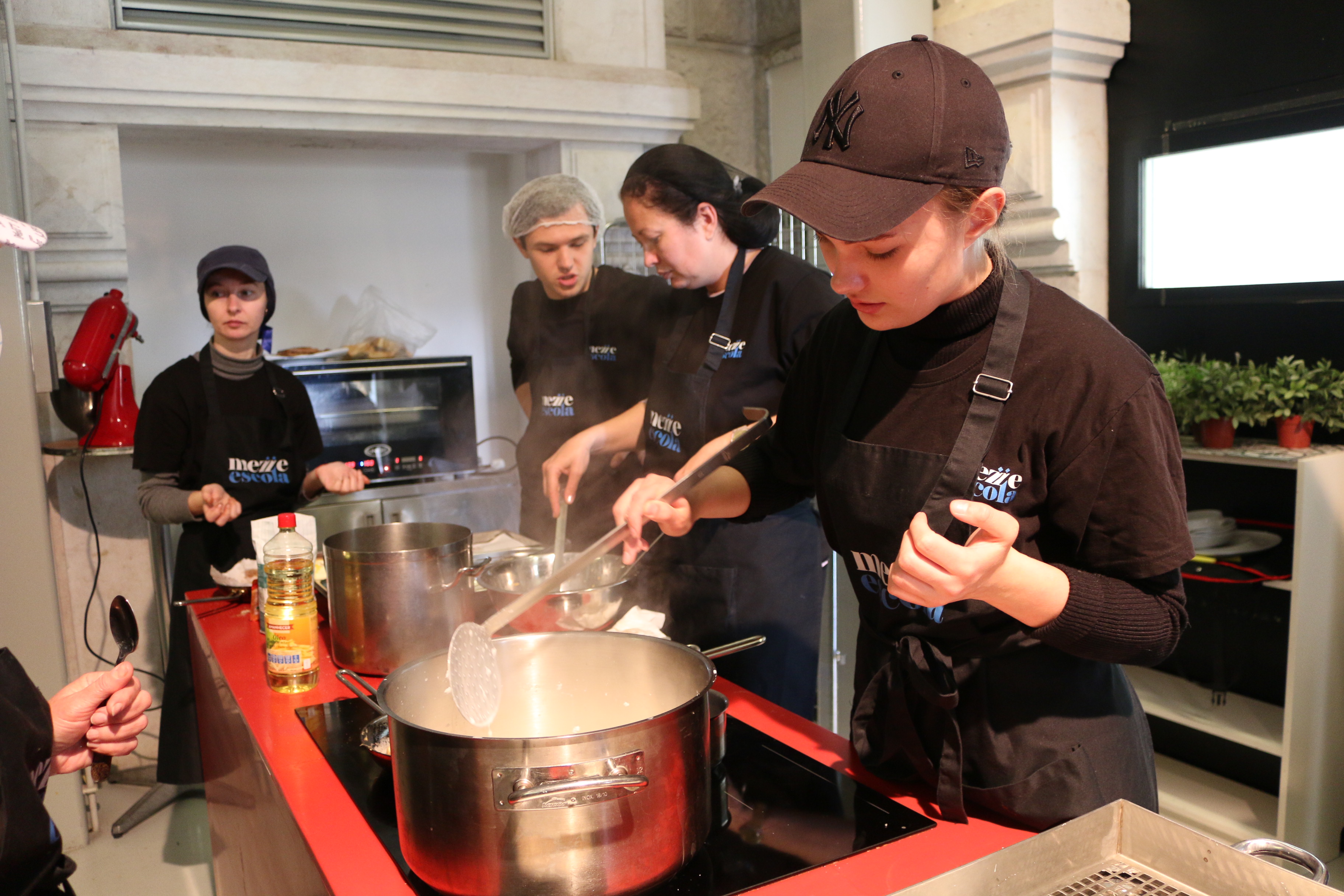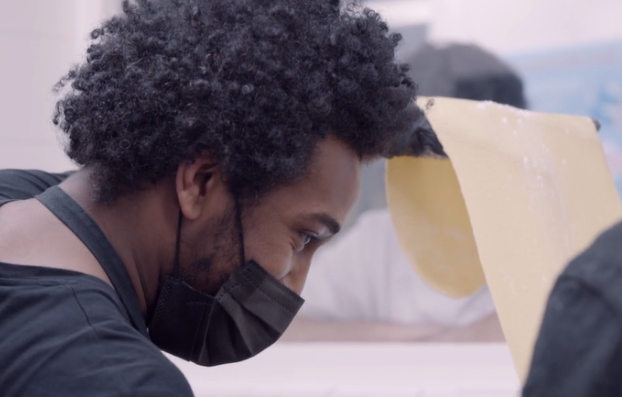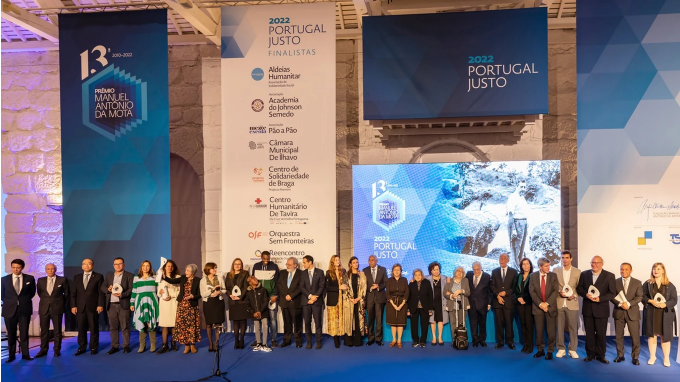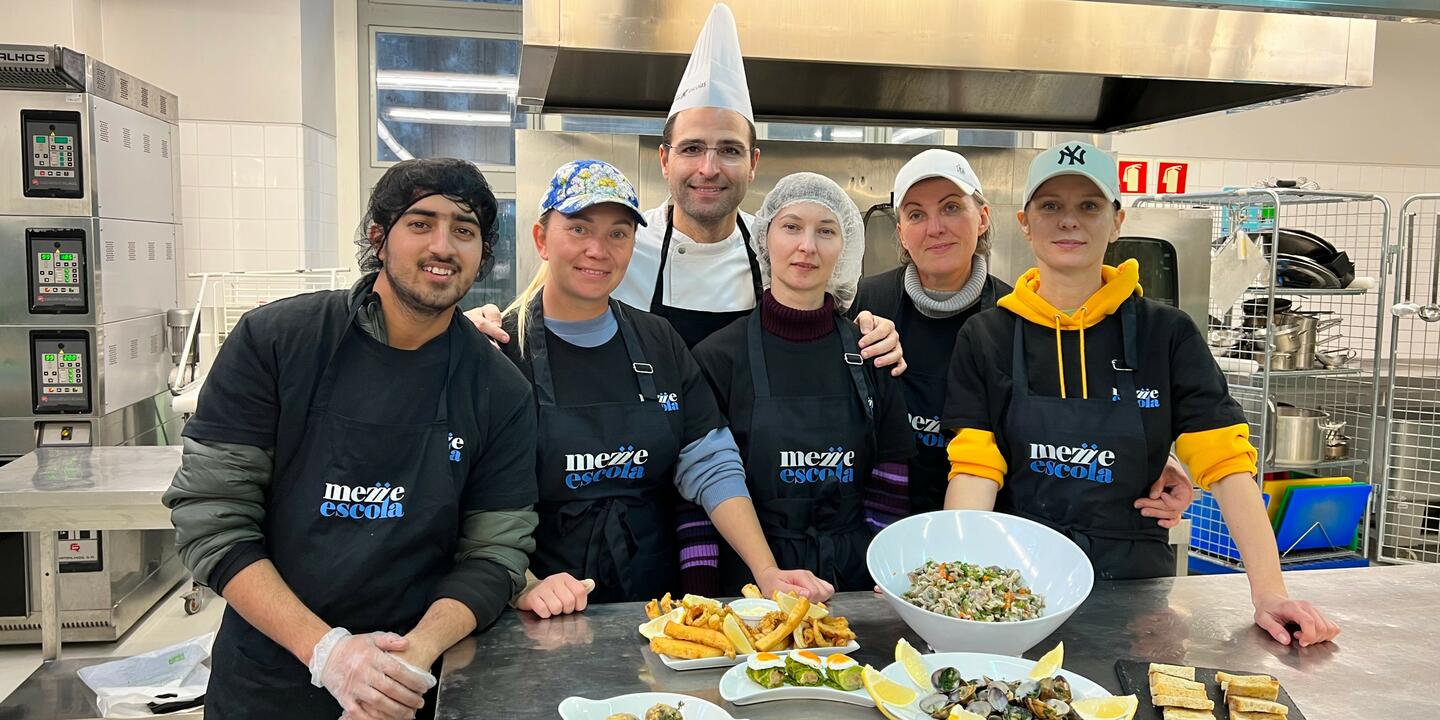Being a refugee or migrant in the EU
Migration to the European Union from third countries has been substantial over the past few decades, and the number of asylum-seekers and refugees has increased considerably since conflicts in Middle East escalated and in February 2022 after the war in Ukraine started.
The successful integration of migrants in the EU labour market represents an opportunity for our societies. But integration goes beyond mere employment. It’s about harnessing the full potential and skills of a person to enrich the EU’s economic fabric. According to the European Commission, a key element includes language acquisition, validation of educational and professional skills, and targeted training. These steps are essential in weaving migrants into the socio-economic tapestry of their new communities.
That is the reason why Mezze-escola was created. “As employers of refugees and immigrants at our Mezze restaurant, we knew it wasn’t feasible to continually open new job positions, whether through new roles, or through new restaurants, at least in the short term.”, says Nuno Mesquina, Project leader and co-founder of Pao a Pao Association. “We know that to work on the HORECA sector people require certain skills, but when dealing with migrants from all origins and particularly with refugees, challenges add up and there are certain ones outside the technical skills that need also to be addressed”, he adds.
Mezze-escola: the ingredients of a successful recipe
“We asked a Syrian student living in Lisbon what she missed most about home. She replied ‘Bread, Syrian bread!’. This was the starting point for Mezze, an Arabic food restaurant where Middle Eastern refugees are given training and jobs”, highlighted the team behind Pão a Pão. Mezze uses the skills that many refugees and migrants bring along and they give them the tools for their work – and their identity – to be valued, thus contributing to true inclusion.
The first Mezze opened in Lisbon in September 2017, and shortly before the opening of the Mezze Restaurant in the Arroios Market, the association Pão a Pão established a cooperation with the Lisbon School of Hospitality and Tourism. This involved providing a month-long training program for refugees and immigrants to acquire new technical skills in the restaurant sector and, consequently, to facilitate their integration into the job market. Five years later, this partnership was resumed with the support of Iceland, Liechtenstein and Norway through the EEA Grants – Active Citizens Fund, a programme aimed at strengthening civil society, supporting and defending human rights and empowering vulnerable groups in Portugal.
“We decided to partner up with the Tourism of Portugal / Hospitality School and Tourism of Lisbon to create a mixed course, that intervenes on different levels, in order to facilitate the learning process of migrants and refugees, and, above all, the ability to perform professionally within a new context and culture”, said Nuno. “Partnerships are of the upmost importance. Not any partnership, but only the ones that can bring knowledge, adaptability and clear operational and market opportunities. The ability of working with the Tourism of Portugal allowed us to have access and partner with its many hospitality schools.”, he added.
The project Mezze-escola is a sustainable inclusion intervention that supports social and economic integration of migrants. Through a 6-month certified programme in the HORECA sector, the project beneficiaries gain both professional skills (with off and on-job training) and access to the labour market. In addition to the technical modules covering basic cooking preparations, restaurant service, food safety and hygiene, among others; the participants delve into critical topics such as personal and social development, language learning, sustainability, legislation and finance.
For over 18 months, the project received more than 29 students from 14 nationalities, including Somalia, Eritrea, Afghanistan, Iraq, Libya and Romania. They organised two 6-month cycles. The trainings were conducted at the Lisbon School of Hospitality and Tourism for the theoretical part, and at the Mezze restaurant for the practical part. “Over 90% of our students considered Mezze-School to be important or very important for their integration.
“In the end it’s not really about finding jobs. It is about hope and confidence to pursue a new life.” Nuno Mesquita

Serving tasty dishes made by hand & packed with stories
Mezze escola does not only bring tasty dishes to the table, they also bring inclusion, solidarity and tolerance.
Behind each participant, there is a shared passion – gastronomy – but there are many different challenging stories. From two Afghan teenagers who escaped the Taliban and found in Mezze-escola their home and community, to a girl who gained courage to leave her partner after years of abuse, Mezze brought light into the lives of refugees and migrants. A light that helped them find a way and a place they could belong to in a new country: Portugal.
“I came from Iraq and finished my education. I was a sports teacher in a secondary school, and I left my country because I lost my husband and my son in the war in Iraq. I left my job and I started from scratch in Portugal.”, said Mayasah Mahmoud, project participant. “I like cooking and I see myself here. I am looking forward to finding a job in the future when I finish this course and we have super teachers in this programme”, she added.
Ika is now 32 and left his country, Eritrea, all alone. He travelled for more than one year, passing through many countries, until he found a new home in Portugal. “In my country there is a dictatorship. That was the main reason why I left. I spent one year traveling. I risked my life to come here.”, he says.
Other participants found in Mezze escola an inspiration to pursue their career in this sector. Aicha [unreal name] enrolled on a two-year course at the Hospitality School of Lisbon to deepen her understanding and knowledge, right after completing the programme at Mezze-escola.
In a podcast broadcasted on national radio, we hear one of the trainers highlighting how special one of the groups participating in the programme is. You can hear the project participants signing and laughing in the back. The atmosphere is incredible. “It is a very special group. I feel we are making a difference in the lives of these people. What we do is really worthy.”, she says.
“Life sometimes makes you worry. There are a lot of situations that happen in your life. When I enter the kitchen, I forget everything. Kitchen and cooking are my therapy”. Yikalo Kiros, project participant.

Making a recipe that everyone can use – everywhere
This project helped bring a new opportunity to many refugees and migrants – but it does not stop there. Now Mezze-escola has just launched a new edition in Porto, and the first edition of the training programme has just finalised. Mezze wants to continue growing in more locations and continue making inclusion, solidarity and tolerance a reality in Portugal.

The initiative has received a number of recognitions over the last years. In 2022, Mezze-escola was recognised with the Hospitality Education Awards 2022 for the ‘Best innovation project’. Organised by the Fórum Turismo, these awards value projects focused on innovation and its development with direct application in the area of tourism and hospitality, which make a difference and stimulate a society better prepared for the future. The list of recognitions goes on, also including the third position at the Manuel António da Mota awards, competing with more than 200 projects.
Mezze-escola is a clear example of how a good recipe – and a good dish – can change the lives of many people. It always starts with one ingredient, and for the team at Pão a Pão, that ingredient is hope.
Do you want to know more about other projects supported by the Active Citizens Fund in Portugal? Find out more here.
